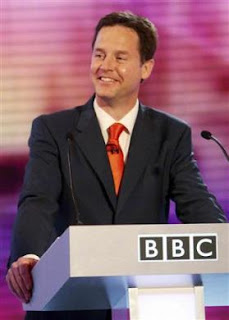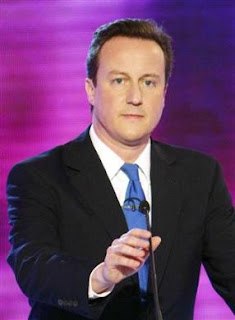
A while back, a friend’s birthday party turned into an impromptu reunion as many old friends from varsity found ourselves congregated. As these things go, we got to reminiscing about the good old days, before that quasi-adulthood, being a student, came to an end.
As we spoke, I’d be playing it down to say, I was taken aback when I realised the image that some - meaning all - of my friends had of me was vastly different to how I perceived myself.
Personally, I’ve seen myself as a mildly funny but generally nice guy, however to my friends that’s not who I am. As one magnanimously put it, I’m “mean,” or as another stated bluntly, “a bitch.” I would’ve pouted and flounced about as only a real man can had they not started reminding me of moments where perhaps some credence was lent to their point.
Of the many so-called facts my so-called friends listed about me to support their lie, the most damnable was that I hate fat people.
Whilst it’s true, many people do hate fat people and I have at times had my less than diplomatic moments on the topic, I don’t get why anybody would hate somebody for being fat. That’s ridiculous, stupid and frankly; prejudicial. Furthermore, if I’m to be accused of this, let’s be specific. It’s the morbidly obese rather than the fat I take umbrage to. And more so, what really irks me how (some) try to fob off their personal responsibility in the matter, arguing that obesity is a disease or some such claptrap.
For despite what Empress Oprah the Magnificent may say; that’s rubbish. A disease, obesity is not. People who suffer from real diseases have for the most part not done anything to deserve them. Obesity, however, is a problem that can be easily handled; eat less or exercise more, or even better yet, do both, and before you say, “but I have a thyroid problem,” know that I hear, “unluckily you have to eat even less or exercise even more.”
I once saw a woman who despite the pleas of the flight attendant refused to sit in her seat because as she shouted, “you make them too small!” In my opinion, that flight attendant should’ve taken JetBlue flight attendant, Steven Slater’s, master-class on how to deal with passengers, thus I have no pity when the grossly obese are forced to pay for an extra seat. Despite what the NAAFA (the National Association to Advance Fat Acceptance, yes it’s real and obviously it’s American) says, it’s not discrimination when airlines do this, it’s to ensure the comfort and yes, the safety even, of all passengers.
I will admit, in my fervour for this topic, I may have sometimes crossed the line with some slightly off colour jokes and comments, But for what reason do we have and cherish the freedom of speech if not to insult and make cheap jokes at the expense of others?
But before we get on our respective high horses, let’s for a moment consider what it is that’s so horrible here? Is it perhaps that some people are offended?
Fact is, just about anything and particularly any joke is certain to offend somebody, however, I’d rather live in a society where I have that freedom rather than the politically correct, but lobotomised horror the PC Brigade is leading us to. The comedian Steve Hughes sums it up best when he says; “When did sticks and stones stop being relevant? Isn’t that what you teach children for God’s sakes? You’re offended? You’re an adult! Grow up! Deal with it!”
On yet another moment, where I essentially was being taken to task, I came to realise that perhaps the issue is the irreverence shown?
As I was told, “within every joke is a bit of truth.” This isn’t a charge I deny. Regardless how flippant whatever I say is, there is an element of what I believe to it. In the case of fat jokes; I’m not comfortable with obesity, I don’t like it, but ultimately I’m joking and nothing more. To that, he replied, “words have power.” Seeing that we were playing a game of parrying clichés, I replied in kind, “life’s too short to always be serious.”
But back to my friend – and I do regard him as one - When he called me a bitch, though he didn’t say it maliciously, it remained stuck in my mind, keeping me tossing and turning through the night as I wondered about his comment. After much thought though, I know I’m not.
Yes, some things are too serious to be funny… But only until that line is said that makes them funny. I may not like something or even you… But I most certainly am not a bitch.














